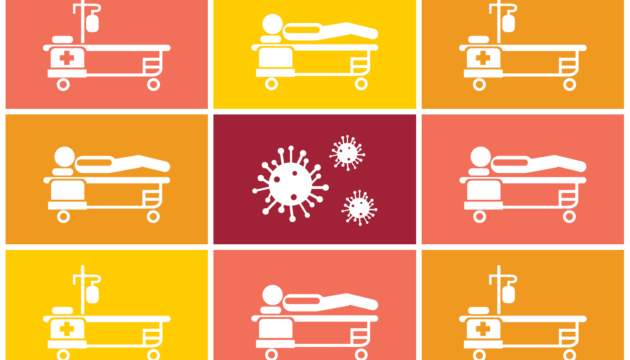Research
-
Reassessing the Value of Minimally Invasive Technologies in the Era of COVID-19
Minimally invasive technologies are capacity-conserving technologies that could reduce burdens on healthcare providers and hospitals while also shielding patients from unnecessary in-hospital exposure to pathogens.
Categorized in -
The Association of Vertically Integrated Care with Healthcare Use and Outcomes
The researchers examined whether vertically integrated hospital and skilled nursing facility (SNF) care is associated with more efficient use of healthcare and better patient outcomes.
Categorized in -
Changes in Health Services Use Among Commercially Insured US Populations During the COVID-19 Pandemic
A new study from Schaeffer Center experts finds that immediately after Los Angeles’ safer-at-home declaration, emergency department utilization dropped by 37% compared to the same 9 weeks in the prior two years.
Categorized in -
The Economics of Alternative Payment Models for Pharmaceuticals
Schaeffer Center experts show how specific market inefficiencies create a role for different value-based pricing structures for pharmaceuticals.
Categorized in -
How Sick Is My Cohort of Patients? A General Approach to Identify Chronic Conditions
This presentation discusses a SAS(r) macro that applies Chronic Conditions Warehouse-like rules to any data set either from insurance claims, or electronic health records (EHR) containing a full picture of diagnoses and procedures from patient medical visits.
Categorized in -
Schaeffer Solutions: Health Policy Recommendations for the Biden Administration and 117th U.S. Congress
The USC-Brookings Schaeffer Initiative for Health Policy has developed practical recommendations and analysis in a number of critical policy areas.
Categorized in -
The Implications of Changing Education Distributions for Life Expectancy Gradients
Recent research has proposed that shifting education distributions across cohorts are influencing estimates of educational gradients in mortality.
Categorized in -
Religious Involvement and Cognitive Functioning at the Intersection of Race–Ethnicity and Gender Among Midlife and Older Adults
Objectives | To investigate the association between religious involvement and cognitive functioning at the intersections of race–ethnicity and gender among midlife and older adults, and to determine if psychosocial factors help explain this relationship. Method | The sample included 14,037 adults aged 50+ from the Health and Retirement Study (HRS). We utilized measures from the […]
Categorized in -
Association Between Exenatide Use and Incidence of Alzheimer’s Disease
Exenatide use is associated with a reduced incidence of AD among Medicare beneficiaries aged 65 years or older with type II diabetes.
Categorized in -
Current U.S. State Cannabis Sales Limits Allow Large Doses for Use or Diversion
Single-use purchase limits of cannabis in states that have legalized typically allow for enough THC to supply a daily user for an entire month or more.
Categorized in





